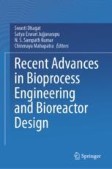Search
Search Results
-
Basic Concepts and Material Properties
This chapter provides a review of important concepts that are needed to formulate, solve, and interpret food systems and manufacturing processes....
-
Basic Concepts for Predictive Microbiology
Advances in science and technology have led to the generation of data that require storage, processing, and interpretation. Predictive microbiology...
-
Thermodynamics: Basic Concepts
Thermodynamics studies the changes associated with the exchange of energy between a system and its surroundings. It establishes the conditions that...
-
Fluid Mechanics: Basic Concepts
The various unit operations used in the processing and manufacturing of materials have been grouped, based on the commonality of some underlying...
-
Basic Concepts of Analytics
Before you can begin to perform experiments in analytical chemistry, you should make a basic consideration: What Is the Question, Anyway? The aim of...
-
Mass Transfer: Basic Concepts
Mass transfer refers to the net movement of a component (species) in an inhomogeneous system from one location to another in the same or different...
-
Introduction and Basic Concepts
Among the many areas of chemistry, polymer science is a comparatively new field. The empirical use of materials made from natural substances with...
-
Basic Concepts
Every nucleus has a spin angular momentum which is characterized by a quantum number I. The angular momentum is a vector quantity. The quantum number...
-
Basic Concepts and Applications of Enzyme-Catalyzed Reactions for Biotechnology
Enzyme-catalyzed reactions provide several advantages such as specificity, high catalytic rate, transition state stabilization, etc., over inorganic...
-
Basic Concepts in Organic Stereochemistry
This book discusses essential stereochemical concepts associated with organic molecules (natural or synthetic), as reflected in the course of their...
-
Systematic Errors in the Results of Quantitative Chemical Analysis: from Incorrect Terms to Erroneous Concepts
AbstractIt is noticed that the conventional interpretation of systematic errors (or, what is the same, the list of varieties of systematic errors)...
-
A reasoned general explanation about the concepts of diffusion and reaction layers
The understanding of the implication of the transport of matter is fundamental in the teaching of heterogeneous charge transfers, which are the...

-
Best Available Techniques and Green Chemical Technology: Possibilities for Convergence of Concepts
AbstractA comparative analysis of the best available techniques (BAT) and green chemistry concepts is given. It was assessed whether their...

-
Electrolytic production of aluminium as a case study for linking engineering and fundamental concepts in industrial electrochemistry
There is a large agreement in declaring that electrochemistry is one of the most difficult curricular domains to teach and learn. Applied or...

-
Atom As an Open Dissipative System in the Basic Environment–the Electromagnetic Component of a Physical Vacuum: Phenomenology
AbstractBased on ideas developed by the author about the vacuum of an electromagnetic field (the EM vacuum as a basic system of reference and the...

-
Basic Formalism
We have studied several important aspects of the quantum theory of fields and found that the theory is based in essence upon the theory of...
-
Basic Theory
It needs various theories and principlesPrinciple to master SPRi such as waveWave theory.
-
MR Elastography of the Abdomen: Basic Concepts
Magnetic resonance elastography (MRE) is an emerging imaging modality that maps the elastic properties of tissue such as the shear modulus. It allows...
-
Basic Principles of Chromatography
Chromatography has many applications for analysis of various foods components. It differs from other methods of separation in that a wide variety of...
-
Basic Considerations for Food Processing
Food processing is an ancient human activity that includes traditional methods like washing, heating and drying foodstuffs. The aim of this chapter...
